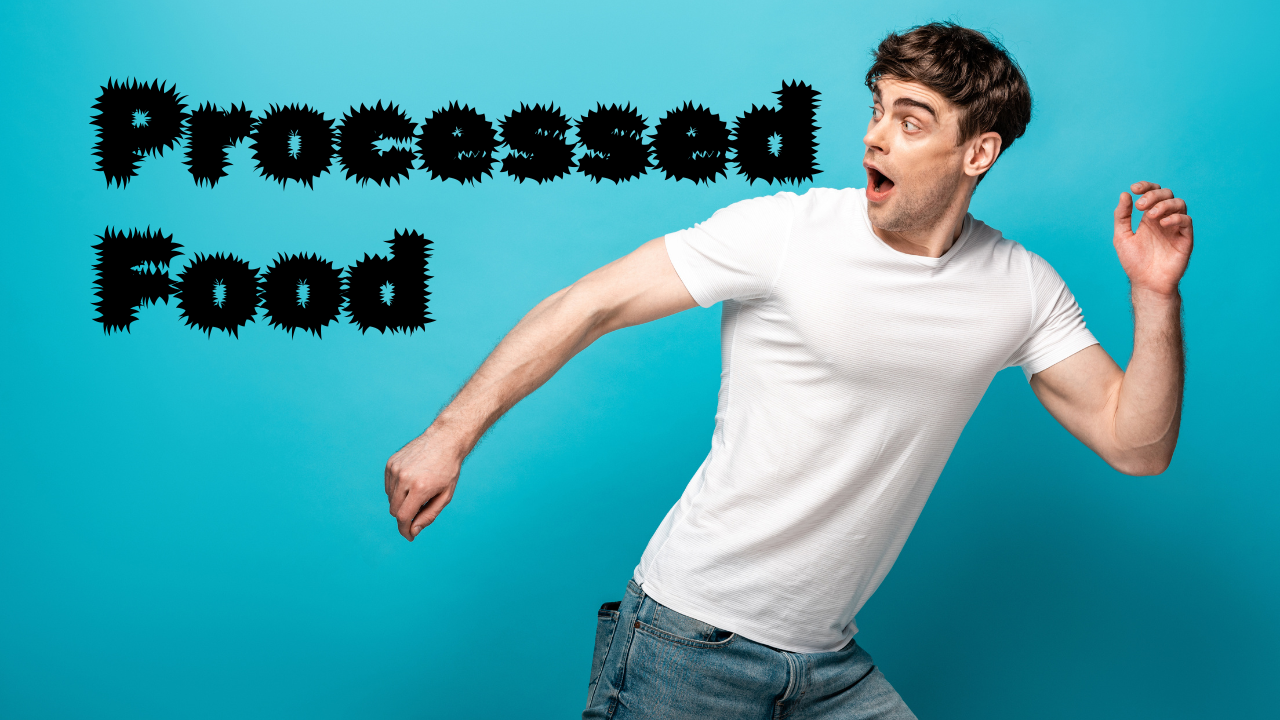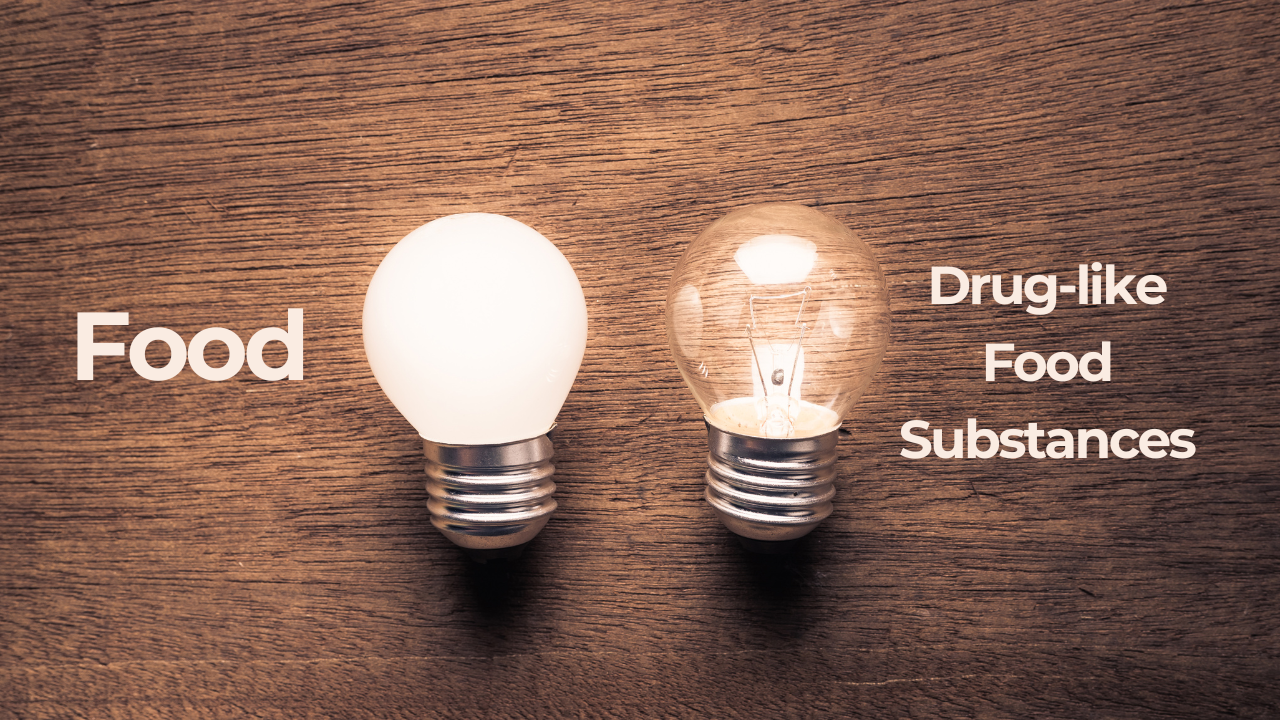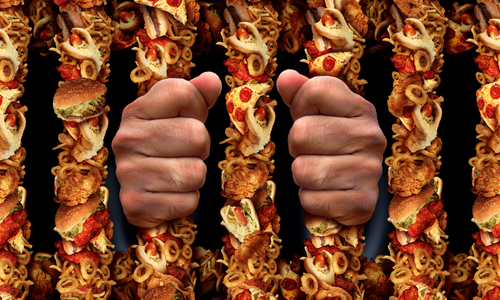10 Factors That Make Food Addiction Harder To Beat

Issue No. 25 | Brought to you by the Addiction Reset Community – ARC
Unlocking the secrets of processed food addiction and guiding you to find freedom from food and weight obsession.

For many people, processed food addiction is severe and much harder to put into remission than alcohol and other drugs.

Several factors may contribute to why food addiction is difficult for you to overcome:
- You have lost and regained weight.
- You can remember craving or longing for processed food as a child.
- You overeat sugar, artificial sweeteners, flour, gluten, excessive salt, dairy, processed fat or caffeine and tend to eat these in combinations.
- You overeat in reaction to a variety of stimuli such as temptation, advertising, relationships, fatigue or stress.
- You often eat at restaurants, fast food outlets, and convenience stores.
- Your household members eat processed food in front of you or leave them out where you can see them.
- Most of your friends and family eat processed foods. ...
11 Signs That You May Be Experiencing Processed Food Addiction

Issue No. 24 | Brought to you by the Addiction Reset Community – ARC
Unlocking the secrets of processed food addiction and guiding you to find freedom from food and weight obsession.

The severity of processed food addiction is often underplayed with the use of phrases like “over-eating”, “emotional eating”, “sweet tooth” or “stress eating”. Framing the problem properly can be the first step to finding solutions.

Research shows that the same signs are present in processed food addiction, that are present in alcohol and drug addiction.
Modelled on the American Psychiatric Association’s criteria for substance addiction, here are 11 signs that you can use to self-assess for processed food addiction:
- You’ve eaten despite not intending to
- You’ve tried to cut back and have failed
- You spend a lot of time thinking about, planning, getting, eating and recovering from processed foods
- You crave these foods
- Eating these foods makes it hard for you to fulfil roles
- Eating gives y...
The Difference between food and drug-like food Substances

Issue No. 6 | Brought to you by the Addiction Reset Community – ARC
Unlocking the secrets of processed food addiction and guiding you to find freedom from food and weight obsession.

Understanding the difference between food and addictive substances can help us to understand why processed foods should be avoided.
Food addiction may have developed as the result of ‘food products’ being formulated to have addictive properties. It would be natural then to be confused about the difference between food and addictive substances since products being sold as food can have an impact similar to that of addictive substances.
Thinking about the difference between food and addictive substances can help clarify the situation and give food addicts a better framework for food choices.
The function of food is to:
- Nourish
- Provide amino acids, essential fats, or fiber
- Provide vitamins or minerals
- Sustain growth

Do processed foods generally perform these functions? No!
The actio...
4 Reasons why it is difficult to recover from Food Addiction | Part 2 of 2

Issue No. 5 | Brought to you by the Addiction Reset Community – ARC
Unlocking the secrets of processed food addiction and guiding you to find freedom from food and weight obsession.

Food addiction may be more difficult to put into remission than drug addiction. Due to availability, lots of triggers, misinformation, and the skills required for recovery, food addiction can be tough to overcome.
In the last issue of our newsletter, we shared two reasons why your efforts to get control of your food may have failed. Here are two more reasons why this may be happening:
Research shows that processed foods are addictive

- Different processed foods are combined into ‘poly-substance’ use - which is harder to treat than single-substance use. Fast food meals typically contain sweeteners, flour, gluten, processed fats, salt, dairy, and caffeinated drinks.
- Processed foods can be more addictive than recreational drugs. Sugar has been shown to reach the brain faster and more powerful...
4 Reasons why it is difficult to recover from Food Addiction | Part 1 of 2

Issue No. 4 | Brought to you by the Addiction Reset Community – ARC
Unlocking the secrets of processed food addiction and guiding you to find freedom from food and weight obsession.

Food addiction may be more difficult to put into remission than drug addiction. Due to availability, lots of triggers, misinformation, and the skills required for recovery, food addiction can be tough to overcome.
These are some of the reasons why your efforts to get control of your food may have failed.
Processed foods and relapse triggers are everywhere

- Addictive foods are available at home, workplaces, along our roads, at our entertainment and sports events, faith organizations and shopping venues. They are woven into our family, social and business traditions and are much easier to get than recreational drugs.
- Our household members may pressure us to keep processed foods in our home and it may be difficult for a recovering food addict to refuse - because we may feel guilty about ‘d...
Food Freedom | Part 2 of 2

Issue No. 3 | Brought to you by the Addiction Reset Community – ARC
Unlocking the secrets of processed food addiction and guiding you to find freedom from food and weight obsession.
 In the previous issue of our newsletter, we shared how the Tobacco Industry took control of the processed food industry in the 1980s and transferred its expertise in nicotine addiction, to processed foods. A deliberate and effective addiction business model was applied to promote addictive “food-like” substances to reach the broadest possible audience, at the youngest possible age.
In the previous issue of our newsletter, we shared how the Tobacco Industry took control of the processed food industry in the 1980s and transferred its expertise in nicotine addiction, to processed foods. A deliberate and effective addiction business model was applied to promote addictive “food-like” substances to reach the broadest possible audience, at the youngest possible age.
The Faces of Addictive Neuromarketing
Some of the main characters behind the Addictive Marketing Business Model include:

Roberto Goizueta: Former CEO and Chairman of the Coca-Cola Company (1931-1997). Goizueta rose through the ranks to become chairman and chief executive officer of the Coca-Cola Company. Credited with transforming the global soft drink manufacturer into one of America's most admired companies, he be...
Food Freedom | Part 1 of 2

Issue No. 2 | Brought to you by the Addiction Reset Community – ARC
Unlocking the secrets of processed food addiction and guiding you to find freedom from food and weight obsession.

Approximately two billion people around the world suffer from overweight or obesity and a broad range of diet-related diseases of the scourge of processed food addiction. Caught in the vicious grips of the Big Food and Dieting industries’ surround marketing business model, people struggling with Processed Food Addiction (PFA) are mostly unaware of the realities of it. Those afflicted by PFA live with self-blame, guilt and shame of losing control of their food and are unable to break free of the shackles of food and weight obsession.
The Addiction Reset Community (ARC) is the world’s leading authority on Processed Food Addiction (PFA) recovery and is raising global awareness of the scientific evidence for processed food addiction, its causes, and its severity. The ARC is also shining a light on the p...

